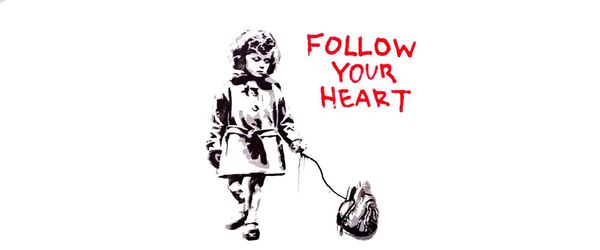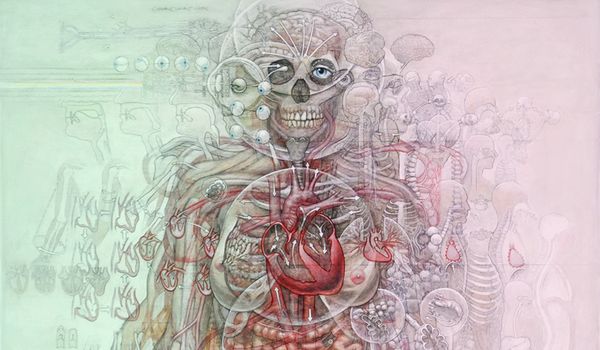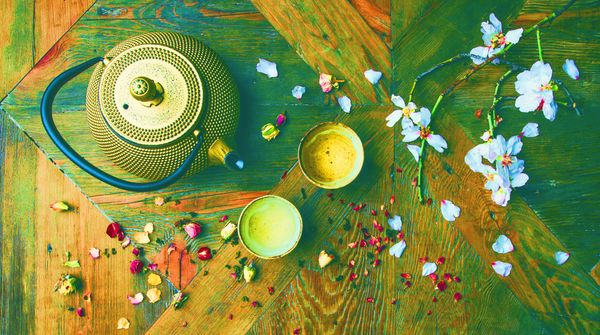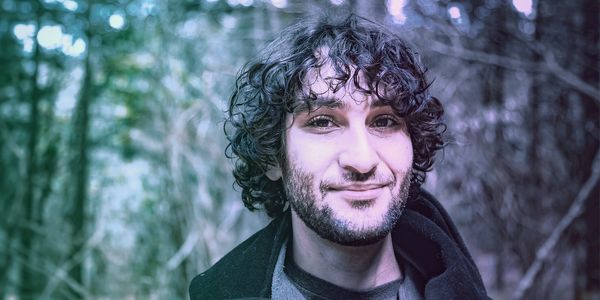Jon Brooks • • 4 min read
Why “Follow Your Heart” Is Really Bad Advice
Consciousness & Meditation Psychedelics & Drugs Self Improvement

“Just follow your heart!”
When all strategic advice fails to hit the mark, that sentence nearly always does the trick.
I have been told to follow my heart, and I have told others to follow their heart countless times.
On the surface it’s great advice.
Sometimes we can get in our own way, overthink, and end up making decisions that didn’t come from our deeper selves. Later we often regret these decisions.
However, I’m here to tell you, that “follow your heart” is BAD ADVICE.
It’s good advice if you have a good heart, but seriously… you really think you have a good heart?
The Buddha actually thought that we should not trust our own hearts.
This may be surprising to some reading this, but if you think about it for a moment it makes perfect sense. If our hearts were already pure and perfect, what would be the point of spiritual training?
Every atrocity carried out by mankind was likely the result of “following their heart.”
In fact, following one’s heart is the perfect excuse to do completely heartless things. The Buddha saw this and attempted to emphasize that one of the main goals of walking the spiritual path is to train one’s heart.
Ajahn Chah, the venerable forrest monk, wrote about this in his spiritual classic Food for the Heart. Read and absorb this wisdom as best you can:
“In my own search I tried nearly every possible means of contemplation. I sacrificed my life for the Dhamma, because I had faith in the reality of enlightenment and the Path to get there. These things actually do exist, just like the Buddha said they did. But to realize them takes practice, right practice. It takes pushing yourself to the limit. It takes the courage to train, to reflect, and to fundamentally change. It takes the courage to actually do what it takes. And how do you do it? Train the heart. The thoughts in our heads tell us to go in one direction, but the Buddha tells us to go in another. Why is it necessary to train? Because the heart is totally encrusted with and plastered over with defilements. That’s what a heart is like that has not yet been transformed through the training. It’s unreliable, so don’t believe it. It’s not yet virtuous. How can we trust a heart that lacks purity and clarity? Therefore the Buddha warned us not to put our trust in a defiled heart. Initially the heart is only the hired hand of defilement, but if they associate together for an extended period of time, the heart perverts to become defilement itself. That’s why the Buddha taught us not to trust our hearts.”
“If we take a good look at our monastic discipline, we’ll see that the whole thing is about training the heart. And whenever we train the heart we feel hot and bothered. As soon as we’re hot and bothered we start to complain, “Boy, this practice is incredibly difficult! It’s impossible.” But the Buddha didn’t think like that. He considered that when the training was causing us heat and friction, that meant we’re on the right track. We don’t think that way. We think it’s a sign that something is wrong. This misunderstanding is what makes the practice seem so arduous. In the beginning we feel hot and bothered, so we think we’re off track. Everyone wants to feel good, but they’re less concerned about whether it’s right or not. When we go against the grain of the defilements and challenge our cravings, of course we feel suffering. We get hot, upset, and bothered and then quit. We think we’re on the wrong path. The Buddha, however, would say we’re getting it right. We’re confronting our defilements, and they are what is getting hot and bothered. But we think it’s us who are hot and bothered.”
Plant Medicine and Heart Healing
A few weeks ago I went to the only legal medically licensed plant medicine center in the world: Rythmia. I’ve already written about a life-changing experience I had there regarding self-love. You can read that article here.
On the wall in the ceremony room, you will find three plaques. They read as follows:
- Show me what I’ve become
- Merge me back with my soul at all costs
- Heal my heart
They are the group intentions recommended by Rythmia. They are fantastic because they are very simple but very inclusive. You must see who you are with no excuses before you will even realize that your heart needs to be healed.
In Buddhism, we practice the cultivation of mindfulness and concentration. It’s essential that we see how our own mind works before we attempt to purify it. During my first night at Rythmia, after drinking two cups of the plant medicine I experienced all three of those intentions.
I found myself encapsulated in a large golden womb, surrounded by beings and the “mother presence.” She pointed out to me all of the things I had done wrong in the last 6 months. Many of these things I did because I thought I was following my own heart. But many of these things were ugly and actually the result of neediness, insecurity, cruelty, and frustration. I was following my heart, but my heart had became corrupt. I didn’t realize at the time. I kinda realized, but I chose not to examine myself.
After getting confronted with my shadow side, I asked the mother to heal my heart. She took me into her arms and filled my chest with light. The experience was incredibly transformative.
How To Train Your Heart
So how should we train our heart?
A spiritual practice of nearly any kind is a good step forward, I believe. Buddhism is a great template you can use if you feel drawn to that. It’s important that you don’t just meditate and read about Buddhism. You also have to cultivate Buddhist virtues to reap the full benefits of heart training. Practicing kindness in every day life is a great way to train the heart.
Beyond that training with compassion-based meditations will be be highly useful. There is a great selection of loving-kindness meditations on the free app Insight Timer.
I would also recommend finding a respected, professional plant medicine center such as Rythmia to experiment with Plant Medicine if you feel called to do that.

Jon Brooks
Jon Brooks is a Stoicism teacher and, crucially, practitioner. His Stoic meditations have accumulated thousands of listens, and he has created his own Stoic training program for modern-day Stoics.










